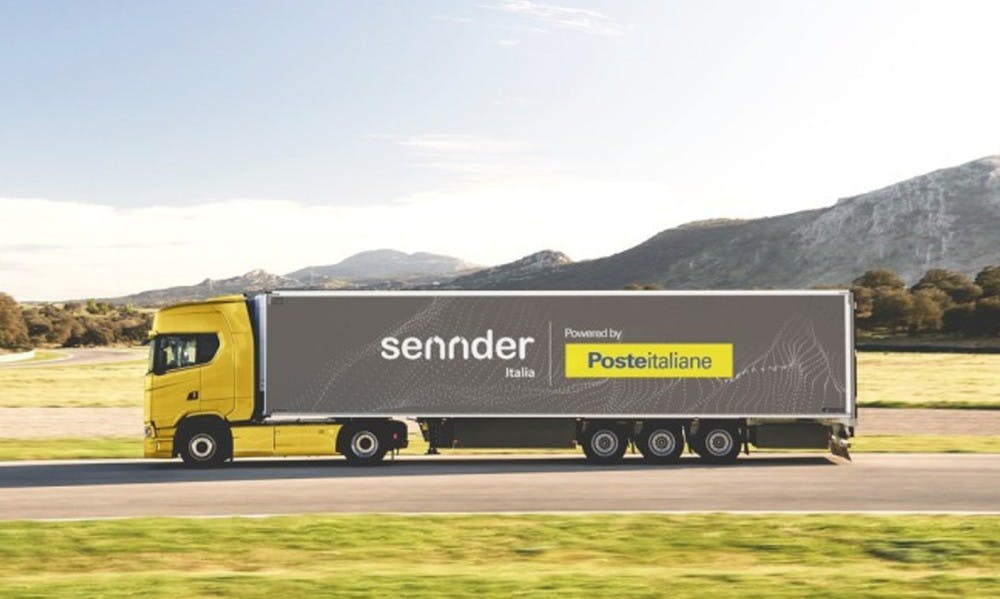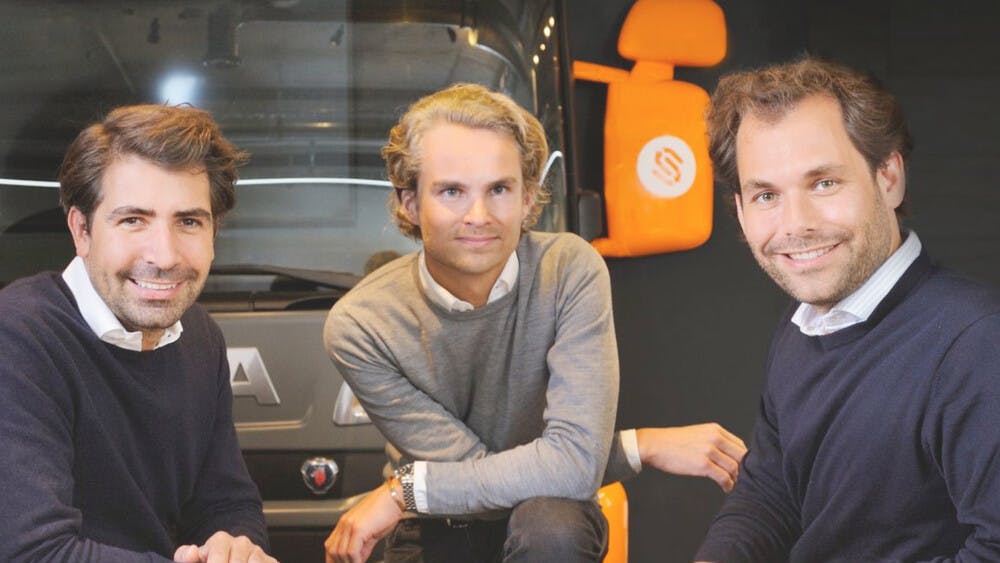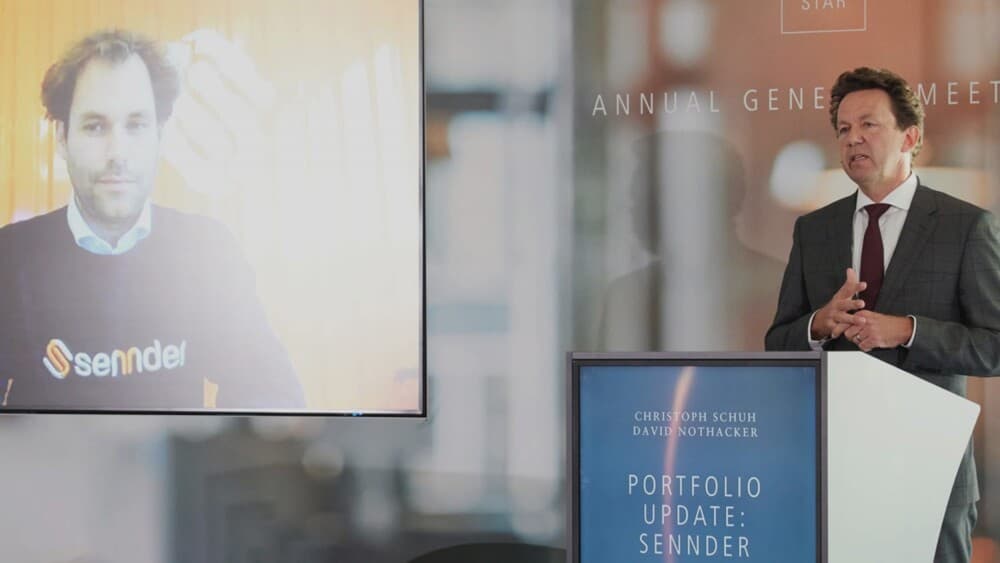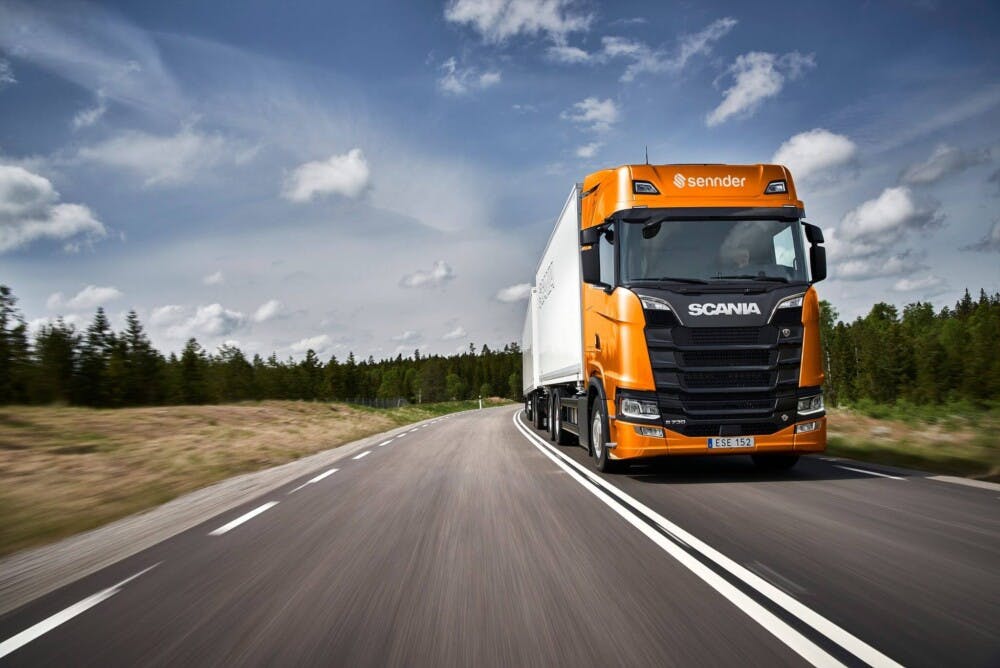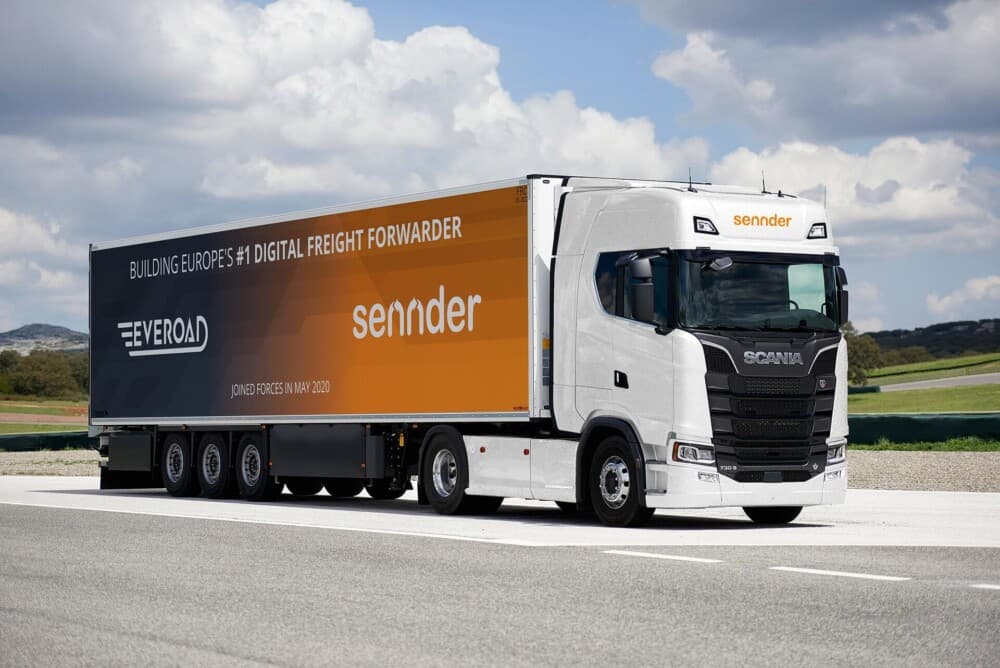Founders' Stories|
Digital disruption of a traditional industry
Sennder is a Berlin-based company which was founded in 2016 to create a digital road freight forwarder for the Full Truck Load segment of the business in Europe. We connect enterprise shippers such as Amazon, Zalando and Coca-Cola directly with small and medium-sized trucking companies, using digitalisation to improve their transparency and efficiency. It is a segment that has been historically very fragmented, and our approach has already made us the number one in Europe just two years after our foundation.
DAVID NOTHACKER, CO-FOUNDER AND CEO SENNDER
Full truck load shippers need to shift freight in dedicated trucks from A to B on a regular basis – often every day. The trucking companies are typically family-owned businesses operating between five and fifty trucks. But 70 per cent own fewer than ten trucks and there are 400,000 trucking companies in Europe. Our role is to contract with both shippers and truckers, repackaging the service so that it is seen to be provided by Sennder.
Traditionally, trucking operations have been provided manually, relying on paper, faxes and phone calls – the only thing that has changed is that smoking is no longer permitted in the trucks! There is also a lot of sub-contracting in the industry which adds to the cost, typically with two to five layers of middlemen: this is because when a shipper’s loads have different destinations in the market, they are split between different truck companies. Only 76 per cent of the trucks on the roads are fully loaded, and 25 per cent are completely empty because they have only one-way deliveries – the information asymmetries that don’t match return deliveries reduce margins for those truckers.
This is where we come in by providing a platform and marketplace that connects shippers with smaller freight carriers and provides them with greater transparency. We can collect data from both sides of the market which is used to increase efficiency and allows us to contract with the cheapest trucker in any market. We can also use the data to cross-sell services to the few thousand trucking companies we work with, saving them money in the highly fragmented market: these include consolidating fuel purchases, bulk-buying insurance, and invoice factoring to speed up payments for truck companies.
Sennder’s focus is on Europe, where the EU’s road freight industry is worth around EUR350 billion, twice the EUR175 billion size of the EU e-travel market and dwarfing the EU food delivery market which is EUR24 billion. We specialise in the EUR100 billion Full Truck Load segment, transporting freight across regions under contract, but excluding pallets, parcels and consignments of less than a truckload.
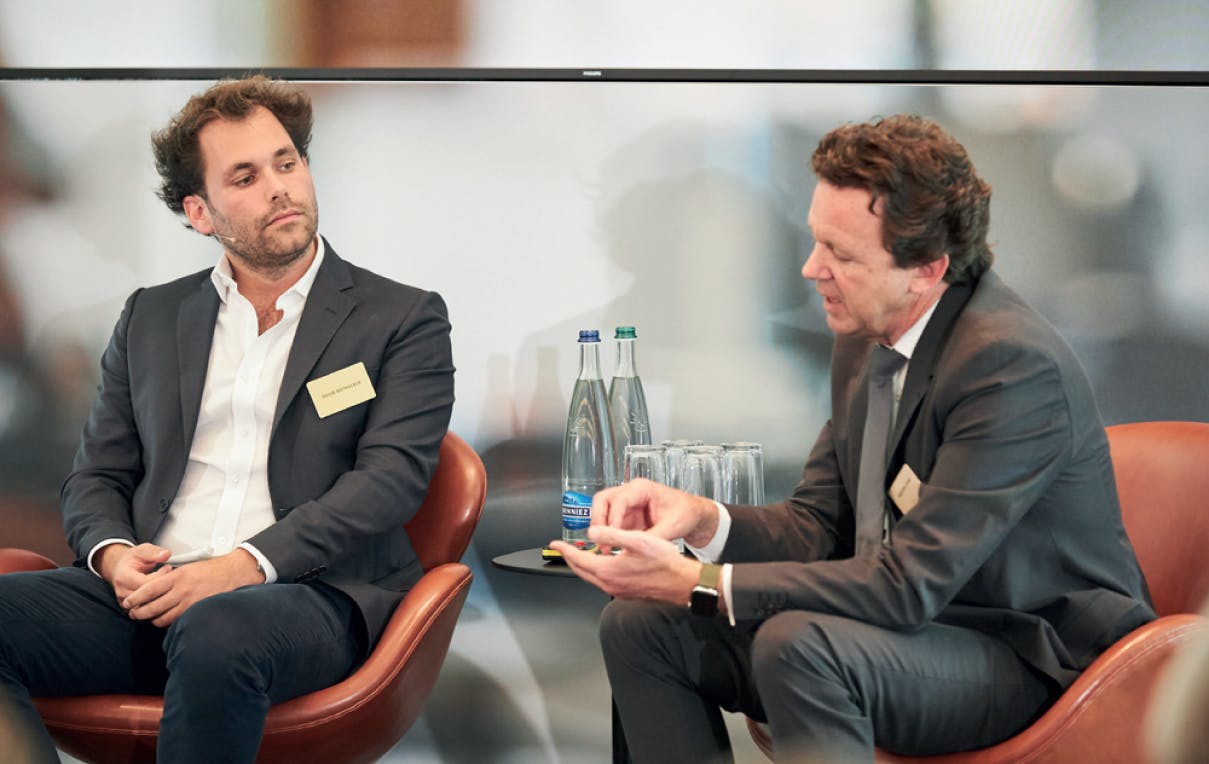
David Nothacker and Christoph Schuh
This focus has allowed us to grow very quickly, at three times a year in 2019. We are targeting EUR1 billion of gross revenue a year in about 5 years, with two priorities:
1. INORGANIC GROWTH : By acquiring ‘old school’ freight-brokers and carving out the logistic departments of large shipping enterprises such as Posteitaliano which we have just signed up;
2. TECHNOLOGY LOCK-IN : By securing carriers who lack the transport management systems that we provide, and leveraging the power of our data to outperform the market.
We have had three rounds of fund-raising since 2016, with high popular demand from large investors such Accel, Holtzbrinck and Siemens. But we are delighted to have attracted Lakestar to lead the third round of USD70 million in July 2019 with an investment of EUR25 million, bringing us the expertise behind the success of companies such as Spotify and Airbnb.
For the future, we see opportunities after 2024 with increasing numbers of autonomous trucks that will fundamentally change our huge industry. Large amounts of investment in the new technology will be needed to run the trucks efficiently, and new relationships between truckers and their customers will be required to fill the space. The business model will be redefined over the following 10–15 years, which will phase out family companies and eliminate the 70 per cent of the truck market which they control, providing us with opportunities to take their place.



